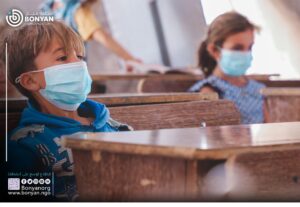About the Cholera
Cholera is an acute diarrheal illness caused by infection of the intestine with Vibrio cholerae bacteria. The toxigenic bacterium Vibrio cholerae serogroup (O1) or (O139).
Globally, an estimated (1.3) to (4) million people worldwide get Cholera every year.
Although it can be treated fast, (21.000) up to (143.000) people die from it! We must never take the treatment process for granted.
People can get sick when eating food or drinking water contaminated with cholerae bacteria.
The infection is often mild or without symptoms, but sometimes it can be severe and life-threatening.

Cholera May Cause Death
Cholera infection is often mild or without symptoms but can be severe.
Approximately 1 in 10 people who get sick with cholera will develop severe symptoms such as
- profuse watery diarrhea, sometimes described as “rice-water stools”.
- Vomiting.
- Leg cramps.
- Restlessness or irritability.
And those severe symptoms are just the early stages of Cholera! In these people, rapid loss of body fluids leads to dehydration and shock.
However, the dangerous stage starts when symptoms like the following start to appear;
- Rapid heart rate.
- Loss of skin elasticity.
- Dry mucous membranes.
- Low blood pressure.
People with severe cholera stage can develop severe dehydration, which can lead to kidney failure, in addition to all the above.
Severe dehydration can lead to shock, coma, and death within hours if left untreated.
Read More:
Conflict Has Fueled the Outbreak
In places such as Yemen and Northern Syria, Cholera has outbroken severely due to the brutal war and the continuance of armed conflicts, which damaged all the infrastructure of these areas, diminishing all chances for people to ever reach healthcare and all social services.
Due to the absence of these essential services and governmental shortage to fill this gap and fix the constructional damage, people of these places found themselves living in the worst conditions ever!
And camps got the worst sides of these conditions; living in the open, with no safe drinking water, poor sanitation, and inadequate hygiene.
Therefore, Cholera found the perfect place for it to outbreaks severely.
Cholera Prevention
Cholera is a fatal disease, not because it is hard to treat, but because it attacks fast before you know it and leads the body to a deadly level of dehydration and shock.
Even in camps, it is treatable with simple procedures by immediately replacing the fluid and salts lost through diarrhea.
Patients can be treated with oral rehydration solution (O.R.S.), a prepackaged mixture of sugar and salts mixed with 1 liter of water and drunk in large amounts.
To prevent Cholera infection, people in camps should learn about the disease, how to contain it, and what actions they must take to keep themselves and their families safe.
Those in charge of camps must provide for the essential needs of refugees and teach them how to protect themselves and their children before, through, and after the disease.
Simple procedures can save lives;
- Wash the hands often with soap and clean water, especially before eating or preparing food and after using the bathroom.
- Use bottled, boiled, or chemically treated water to wash dishes, brush teeth, wash and prepare food, and make ice.
- Dispose of feces in a sanitary manner to prevent contamination of water and food sources.
- Drink only bottled, boiled, or chemically treated water and bottled or canned beverages.
Those who care for the sick must work accurately and fast to help the patients recover fast and contain the disease as much as possible.
When cholera patients are treated quickly, they usually recover without long-term consequences.
Cholera patients do not typically become carriers of the cholera bacteria after they recover, but they get sick if exposed again.
Therefore, people caring for cholera patients must wash their hands thoroughly after touching anything that might be contaminated with patients’ wastes and keeps their heads up until this pandemic fads away entirely.
FAQ
Why did the Cholera Outbreak Occur in The Camp?
Cholera outbreak occurs in the camp because camps have the perfect conditions for it to spread, where there is inadequate water treatment, poor sanitation, and inadequate hygiene.
Which Factors May Increase the Risk of Cholera in Refugee Camps?
1. Unsafe food and drinking water.
2. Inadequate water treatment.
3. Poor sanitation.
4. Inadequate hygiene.
What was the Biggest Outbreak of Cholera?
On 20 October 2010, the first cholera outbreak ever confirmed in Haiti was recognized as the worst in recent history, with over 820,000 infected cases and nearly 10,000 deaths.



